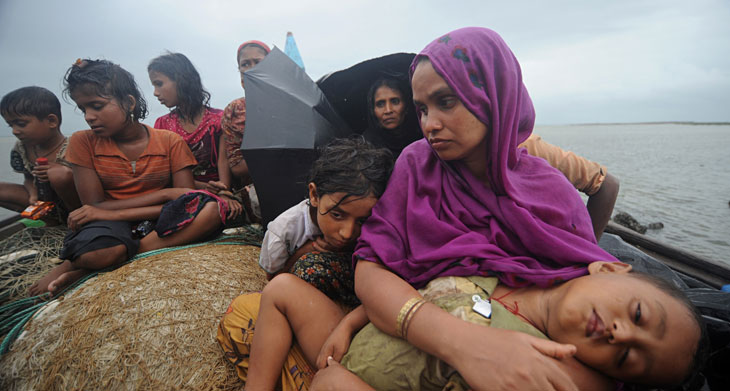MIRREN GIDDA
As millions of voters cheered on November 13 the outcome of Myanmar"s national elections, one man, 52-year-old Abu Tahay, was muted in his celebrations. Although the National League for Democracy (NLD), led by Nobel laureate Aung San Suu Kyi, had won a landslide victory, ending 53 years of military or military-backed rule, Tahay found it hard to toast a party he couldn"t even vote for. By law, Tahay, a Rohingya Muslim who briefly held a seat in the country"s parliament and has met both U.S. President Barack Obama and British Prime Minister David Cameron, was not allowed to take part in the elections. He, along with the country"s 1 million other Rohingya, was excluded from the electoral process by Myanmar"s military-backed government.
It was a painful blow to a group widely described by human rights organizations as one of the most persecuted in the world. Although the Rohingya have lived in Myanmar for centuries, they are officially stateless. Myanmar, a primarily Buddhist country that is also known as Burma, classifies them as illegal Bengali immigrants. In the country"s 2014 census, they could register only if they listed their nationality as Bengali. For decades, extremist Buddhists in Myanmar have persecuted the Rohingya. In 2012, riots between Rohingya Muslims and Buddhist nationalists in the western Rakhine state left 200 people dead and 140,000 displaced. Thousands of Rohingya have tried to flee to other countries, many dying in the attempt.
For some Rohingya, the NLD victory is merely the elections" least bad possible outcome. "We supported them during the election, even though they were quiet on our issues," Tahay says, speaking by phone from Yangon, Myanmar"s largest city. Despite her status as a human rights activist, Suu Kyi did not condemn the Rohingya"s persecution during her campaign. In June, she said that "the protection of the rights of minorities...is such a sensitive issue, and there are so many racial and religious groups, that whatever we do to one group may have an impact on other groups as well." Critics accused Suu Kyi of not wanting to alienate potential voters. "We look at Daw Aung San Suu Kyi as a democratic icon. We are very disappointed in her," says Tahay.
Tahay has been waiting for three and a half years for Myanmar"s election commission to authorize his political party, the Union National Development Party, which advocates for the Rohingya and in other issues for minorities. The party has 50,000 members, but since the commission has not registered it, the party cannot put forward candidates for elections. Tahay is hoping that the NLD, now that it has won power, will protect his people. "We are trying to have hope, because there is no alternative for us," he says.
Tahay may be right to be optimistic. Following the elections, Win Htein, a senior figure in the NLD, criticized Myanmar"s 1982 Citizenship Law, which denies the Rohingya citizenship. "It must be reviewed because it"s too extreme," Htein said. In December 2014, the U.N. General Assembly called on Myanmar to amend the law. In his postelection comments, Htein echoed the U.N."s demands, adding that amendments should be made "so that we consider those people who are already in our country, maybe second generation...as citizens."
Despite Htein"s comments, the Rohingya still face a long wait before things are likely to change. Myanmar"s new government will not be sworn in until March of next year. Should it change the country"s citizenship laws, there is no guarantee that those persecuting the Rohingya will see them as their equals. It may be years before the Rohingya can truly call Myanmar home.







Comments